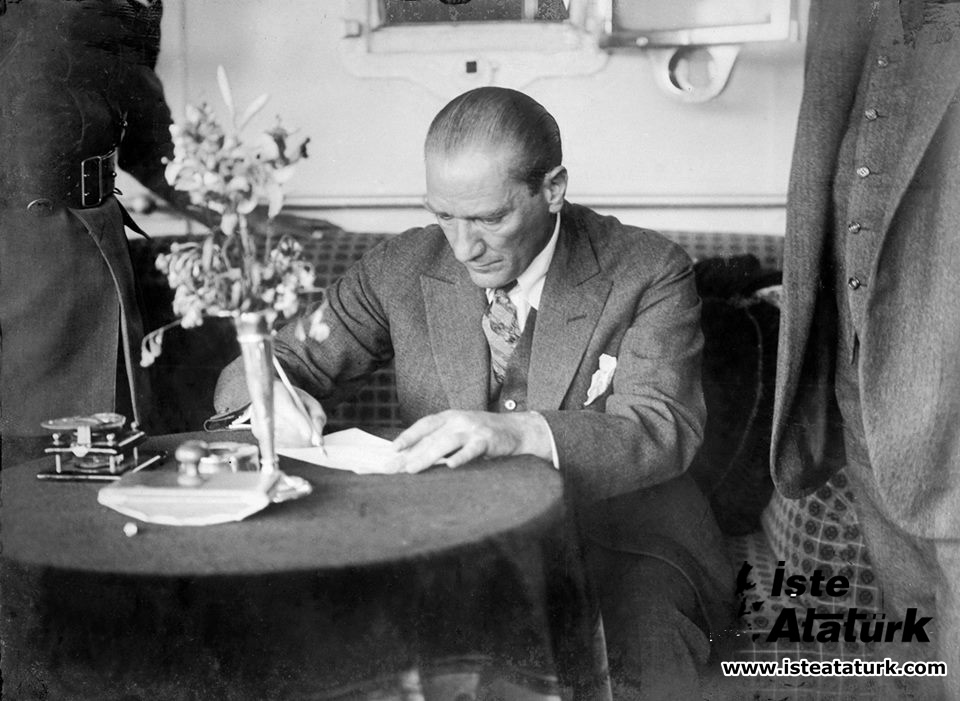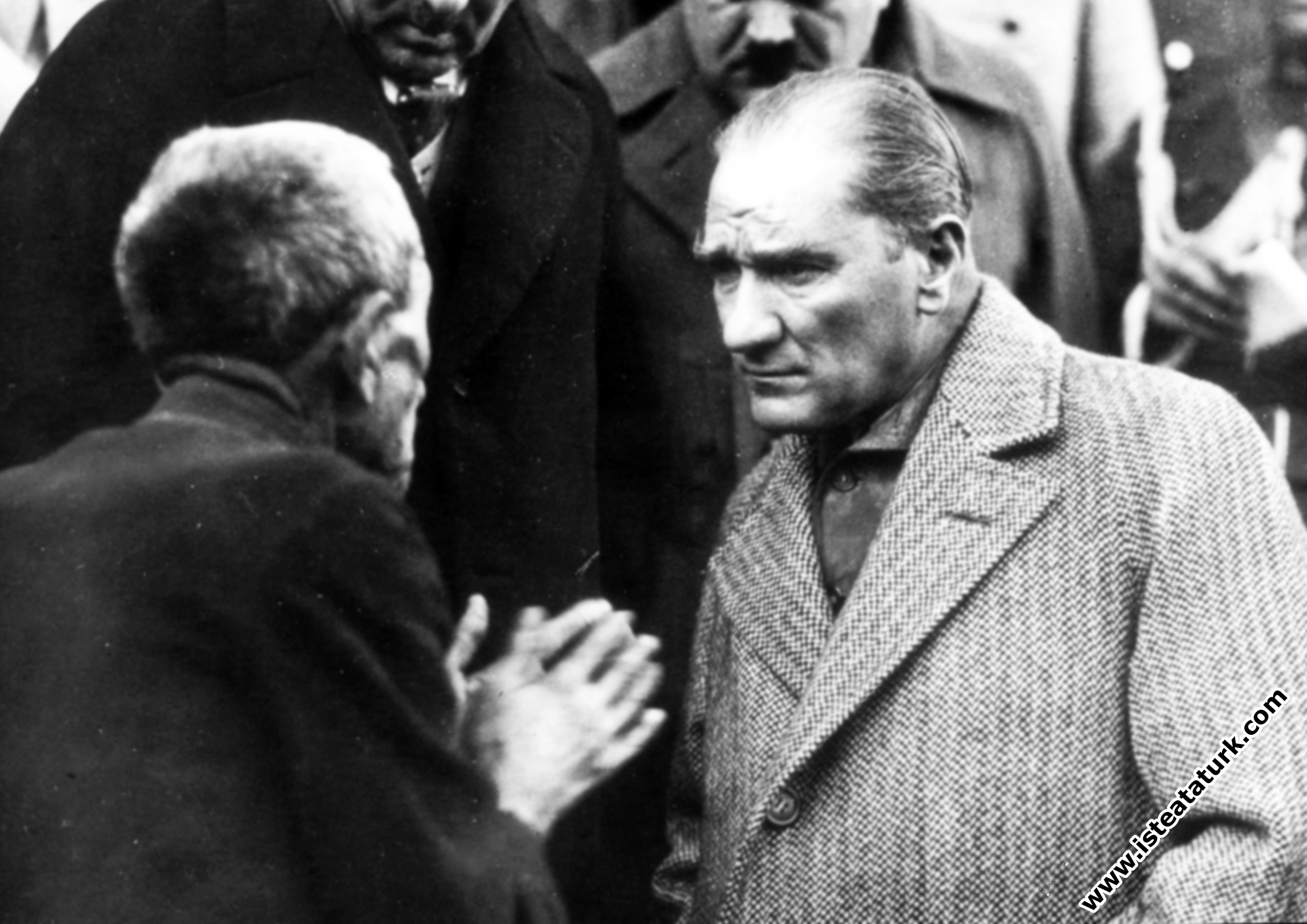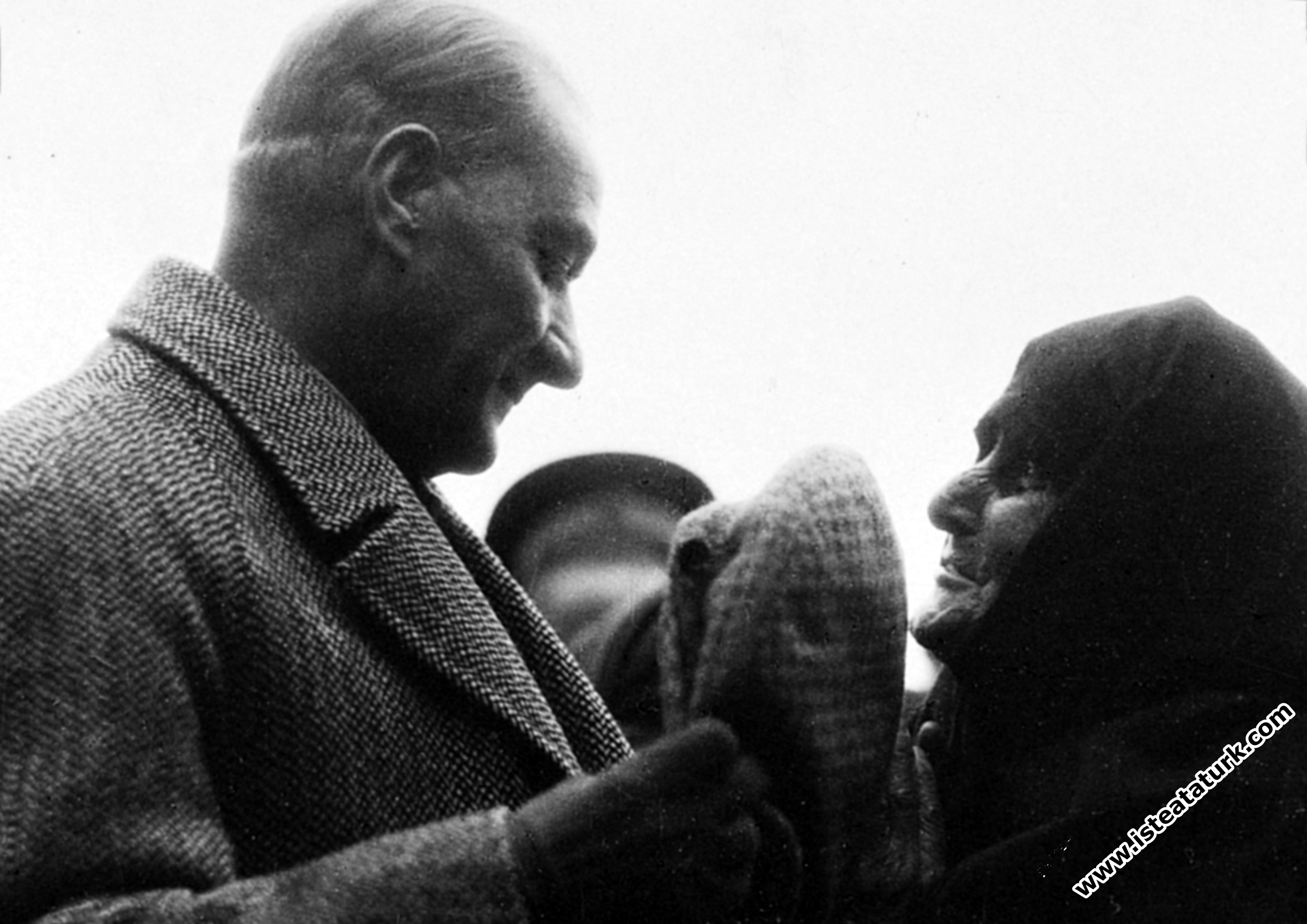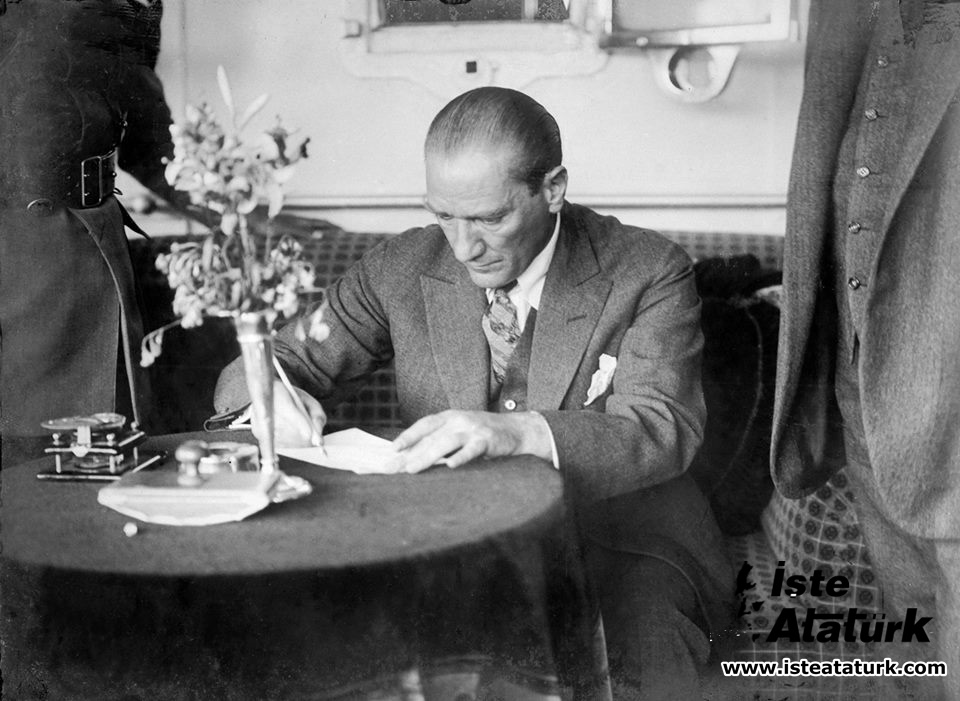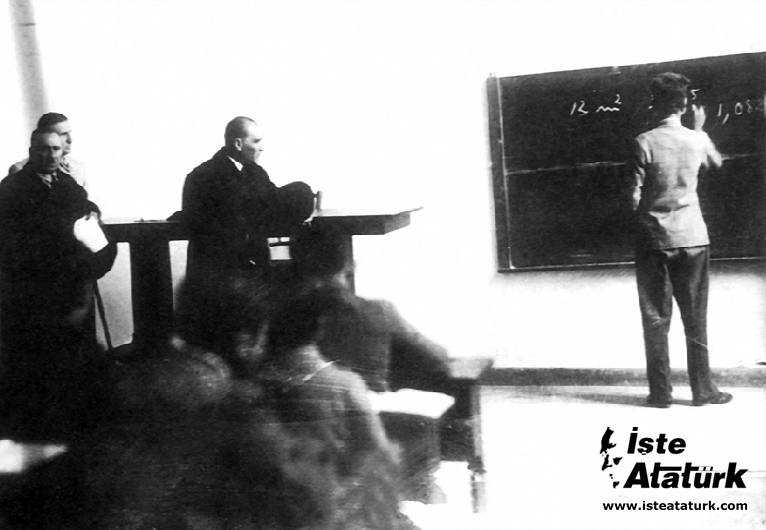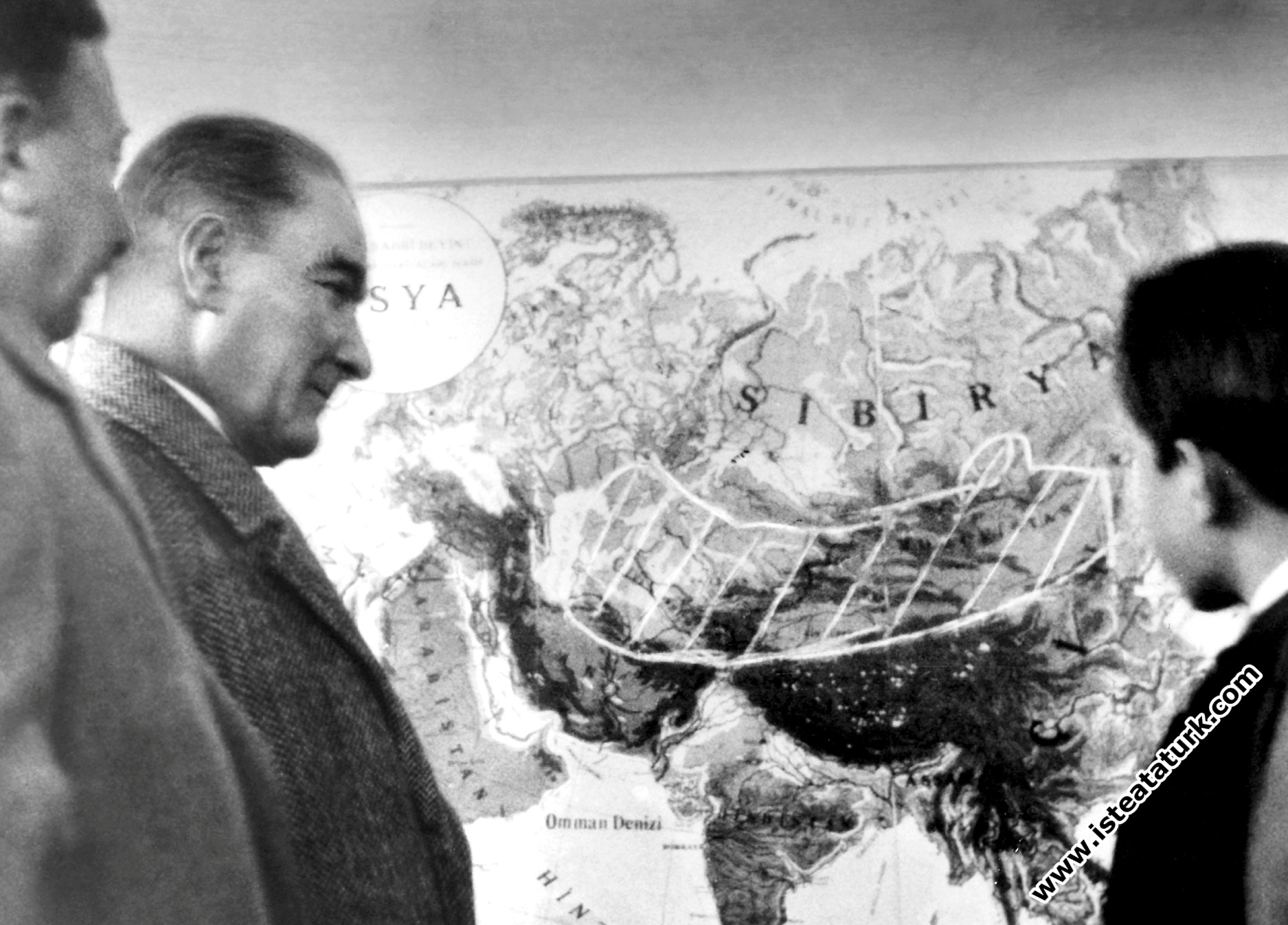
The Universality of Kemalism
Character Size
“It is our motto to act with reason, logic and intelligence. The cases that fill our entire lives are the proofs of this truth.” Mustafa Kemal Atatürk
THE UNIVERSALITY OF ATATURKISM
The least studied aspect of Atatürk and Kemalism is its effects on other nations. Apart from individual publications on this subject, studies with integrity and comments and evaluations based on these researches have not been made.
Research on Atatürk and the universal aspect of Kemalism can be done by considering each country separately, mainly in third world countries, or it can be done collectively for all third world countries by considering military, economic, social and political issues.
Atatürk and the universal aspect of Kemalism should be examined theoretically and practically. The theoretical analysis of the subject can be done under the following headings:
a. Investigation and evaluation of the features and elements of Kemalism, which has universal and contemporary qualities as well as national qualities, as a new worldview;
b. Comparison of Kemalism with other great thought systems;
c. The place of Kemalism in the history of thought systems.
Along with the theoretical examination of Atatürk and the universal aspect of Kemalism, a practical examination of the following issues can also be made:
a. International echoes of Atatürk's thought system. Which view and practice had an impact and resonance in which country or country group;
b. The effect and contribution of the application of Kemalism in Turkey on the political events in the world;
c. The contribution of the War of Independence to other liberation movements and the value of being a pioneer;
D. Evaluation of Atatürk and Kemalism for the future.
Researching how the outside world evaluated Atatürk and Kemalism at that time and today, without starting a theoretical or practical analysis, is undoubtedly the first step. For this, Mr. Bilal Şimşir's 4-volume compilation titled Atatürk in British Documents is a happy and exemplary start. It is also obligatory to bring foreign publications related to Atatürk and Kemalism to our libraries.
The subject is big, the field is empty and waiting for its researchers. Undoubtedly, all these researches can best be carried out by Turkish scientists. For research, it is also necessary to determine the specific methodology of the subject. While determining the methodology, it should be taken into account that Kemalism is an integrated thought system and its social, economic, political and military elements.
In the universal analysis, along with the main events and elements, the effective and dominant features of Kemalism in Turkey should also be taken into consideration. The following opinions can be considered as basic data in all these reviews.
Kemalism, as a whole, determines the principles, implementation principles and management of the establishment of a nation-state, the modernization of this nation-state and its modernity in every age.
The practice in Turkey is the sum of three major events. These; The War of Independence is the events of revolutions and national sovereignty. One of our revolutions is the provision of national sovereignty, which is realized by changing the power. However, due to its importance and impact, it would be useful to consider it separately. In order to achieve national sovereignty, it was necessary to change the source of power, expand the power base, and transfer the power to the nation.
All principles and revolutions are a whole. However, instead of definite connections and obsessions in Kemalism, the answers that reason and science will find in accordance with the conditions and needs are the main ones. It is understood more and more every day that Atatürk's principles and reforms constitute the most valid and realistic system of thought and practice compatible with reason and science in the conditions of our age.
The three major events in the implementation of Kemalism, the War of Independence, national sovereignty and reforms, each had a different effect and echo. Of these, our War of Independence had a greater impact on and resonated with other nations compared to our reforms and our practice of national sovereignty. Our War of Independence gave strength and hope to all oppressed and occupied nations. With the War of Independence, the Turkish nation also fulfilled its historical responsibility towards the oppressed nations. After the beginning of the Turkish decline -after Vienna- the eastern countries began to be colonized by the Europeans. The liberation of the same countries could begin after the leadership and the environment provided by the War of Independence, which was won three centuries later.
The place where the return from Vienna is stopped is Sakarya. The Battle of Sakarya is a great turn, a great climax, not only in Turkish history, but also in world history. Westerners saw the Turks initially as a threat to themselves and later as an obstacle to their expansion and expansion. It would not be possible to dominate in the east without eliminating the Turkish power. For this, it was necessary to expel the Turks first from Europe and then from Anatolia. As this policy, which is called the Eastern problem, gained success, it became easier to colonize and occupy the third world countries. The loss of the Turks' domination of the Black Sea and the Mediterranean, the superiority they lost in the Indian Ocean with the Portuguese wars, opened new fields for the occupation and colonialism of the West. The number of pitched battles that brought as much change to world history as the Sakarya Pitched Battle is not so many. The proud victors of the First World War tasted a defeat they had not seen for centuries four years after their victory. The Westerners felt that this defeat was very closely related to their future, and in the days following the August 30 Victory, they asked for help from the Balkans (Romania, Yugoslavia), the Far East (New Zealand, Australia, India) and each other in order not to give Thrace to the Turks. .
With the War of Independence, the era of liberation wars began in the world. The War of Independence became universal by surpassing our national history, pioneered the birth of the third world and set an example. The liberation wars led by our War of Independence were sought to be directed and used by various policies and world powers in accordance with their own purposes. These interventions have diverted many liberation wars from their purpose and caused oppressed nations to fall under the influence of another power while getting rid of the influence of one power.
The most important feature of the Turkish War of Independence is that it was carried out without the influence and contribution of any foreign power and was aimed at full independence. At the beginning of the War of Independence, at a time when it was still very weak, when the Soviet Union demanded Van and Bitlis with some rights that would shadow our independence in return for aid, it was absolutely rejected and the Soviets were accused of imperialism. The Turkish War of Independence, as a war of liberation, also prepared its own thought ground.
Liberation wars may differ in practice depending on the special conditions of the country fighting this struggle, the world power centers at the time of its implementation, and the effects of the dominant policies. Liberation wars should be evaluated considering these special conditions.
The basic elements that make up the characteristics of the Turkish liberation movement; The supreme personality of the leader of the movement, Atatürk, the historical and cultural structure of the Turkish nation, the geography of Turkey and the world political situation at the time of the War of Independence.
The Turkish nation, which carried out the Turkish liberation movement, comes from a greatness that gave its name to its century four centuries ago. It is the representative of the Asian steppe civilization; He made great contributions to the development of Islamic civilization. He realized the synthesis of Turkish and Islamic civilizations, and this synthesis became the founder of one of the longest-lasting and largest empires in the world, based on civilization. The superiority and greatness of the state order and civilized structure of this empire comes to light in every new study. The Turkish nation has established nearly 200 states. Undoubtedly, there will be some differences between the cultural accumulation, traditions and spiritual structure of this nation and the nationalization and statehood of a community that established a state for the first time.
Leaders of liberation movements are another of the main elements shaping the movement. Atatürk is the pioneer leader of the liberation wars. He is a genius brought up by the great historical accumulation and the Turkish cultural environment. It is, of course, difficult to find this greatness in the leaders of other liberation wars. However, there is an example like Atatürk before the leaders of other liberation wars. Atatürk, on the other hand, does not have such an example before him. Evaluation of the leader in the study of liberation wars is important because of its influence on the formation of the movement.
Undoubtedly, one of the most important factors affecting all military, political, economic and social events is geography. Geographies should be seen as a fait accompli in the destiny of countries with their lower, upper and lower climates. For this reason, the geographies of the countries that waged the liberation wars should also be examined as a factor shaping the phenomenon. One of the characteristics of Turkey's geography is that it is the shield of the east against the west. The geography of Turkey acts as a shield to the region behind it, not only between east and west, but also against the effects coming from all directions. The geography of Turkey is the crossroads and the nodal point of all passions. This geography has its place and weight in all struggles in the world. It has contact and relationship with all cultures and all power centers in the world. In this geography, the life of the nation can be sustained only on the condition of being strong in every field. Every country fighting for independence should be evaluated by taking into account its geographical structure.
The political structure of the world at the time of the liberation struggles of the countries, the state of the powers that dominate the world, the political currents and the methods of expansion are the factors that need to be taken into consideration and examined. The activities of the world powers in the 1920s and the world powers and political currents in the 1950s are, of course, not the same. While examining the universal effects of Atatürk and Kemalism, it will be seen that each country has tried to evaluate Kemalism in terms of its own conditions and needs and to benefit from these views and practices.
There are also countries and thinkers who consider to benefit from only one aspect of Kemalism due to their own conditions. For example, thinkers of some South American countries are considering to benefit from Atatürk's founding of a nation-state in order to become a nation, to become a state, to become a nation-state. In their eyes, Atatürk is a founder of nation states and a creator of nations. Some South African thinkers are worried about the disappearance of their own culture as a whole, and they do not accept the westernization of Kemalism and defend only the principle of modernization.
It should not be seen as a very easy event to see Atatürk as a modernization leader and Kemalism as a modernization method and to reach the understanding of the integrity of this system of thought. This system of thought and the principles that form the basis of practice are the requirements of our age. Adaptation to the era is possible today with these principles. However, Kemalism is a system of thought, which is based on the guidance of reason and science, and foresees the use of the data of reason and science according to conditions and needs. Atatürkism gained more exemplary value after the Second World War and Atatürk became a world value. In this result, as the conditions of the end of the Second World War were effective, it was also an important factor that the time required for Atatürk's example to settle and spread in the oppressed nations under occupation and colonization was also an important factor.
The first effect of Atatürk on the oppressed nations was as a result of the defeat inflicted on the westerners by the War of Independence, and Muslims especially adopted Atatürk's veteran aspect. The abolition of the caliphate and the reforms following the War of Independence were great goals that were difficult to understand and hard to reach for these communities. At this point, there is a pause in adherence to Kemalism with the false propaganda of the west. However, time glorified Atatürk and Kemalism again and made Kemalism widespread. Wars gain value with their military values and their future effects. Undoubtedly, the War of Independence carries a great military value. But as important as its military value, it is the breakthroughs made by taking advantage of the result. War opens, widens and secures the path to the goal. War of Independence, It is the indispensable first step of our independence, sovereignty, freedom, modernization and establishing our national state. However, if the Revolution had not followed the War of Independence, neither establishing a national state nor modernizing it would have been possible. The establishment of an independent national state was possible with the War of Independence, and the realization of modernization was possible with the revolutions.
The War of Independence is the war at the point where this synthesis civilization lost its self-renewal power and succumbed in the Ottoman Empire, which was exalted by the Turkish-Islamic synthesis civilization. The War of Independence and the revolutions are aimed at the Turkish-Islamic synthesis civilization to reach a new synthesis with the western civilization. Revolutions paved the way for a new synthesis with western civilization. For this reason, we see Kemalism as a completely new civilizational move.
The great responsibility of Turkish scientists and Turkish intellectuals is to examine the echoes and effects of Atatürk and Kemalism on other nations and to explain Kemalism to the world as a thought system with all its elements and features. Demonstrating and spreading Atatürk and Kemalism more clearly will contribute to the world as well as Turkey; it will be possible to create a more humane, more dignified and more peaceful environment. The establishment and survival of Kemalism in Turkish people and in our institutions will constitute the main element of our strength, eliminate the imbalance between us and developed countries, and bring us to the strength required by the geography of Turkey, which does not give weak nations the right to live. Because Kemalism shows the way and method of being modern in every age.
Suat İlhan
Source: ATATÜRK ARAŞTIRMA MERKEZİ DERGİSİ, Sayı 4, Cilt: II, Kasım 1985
